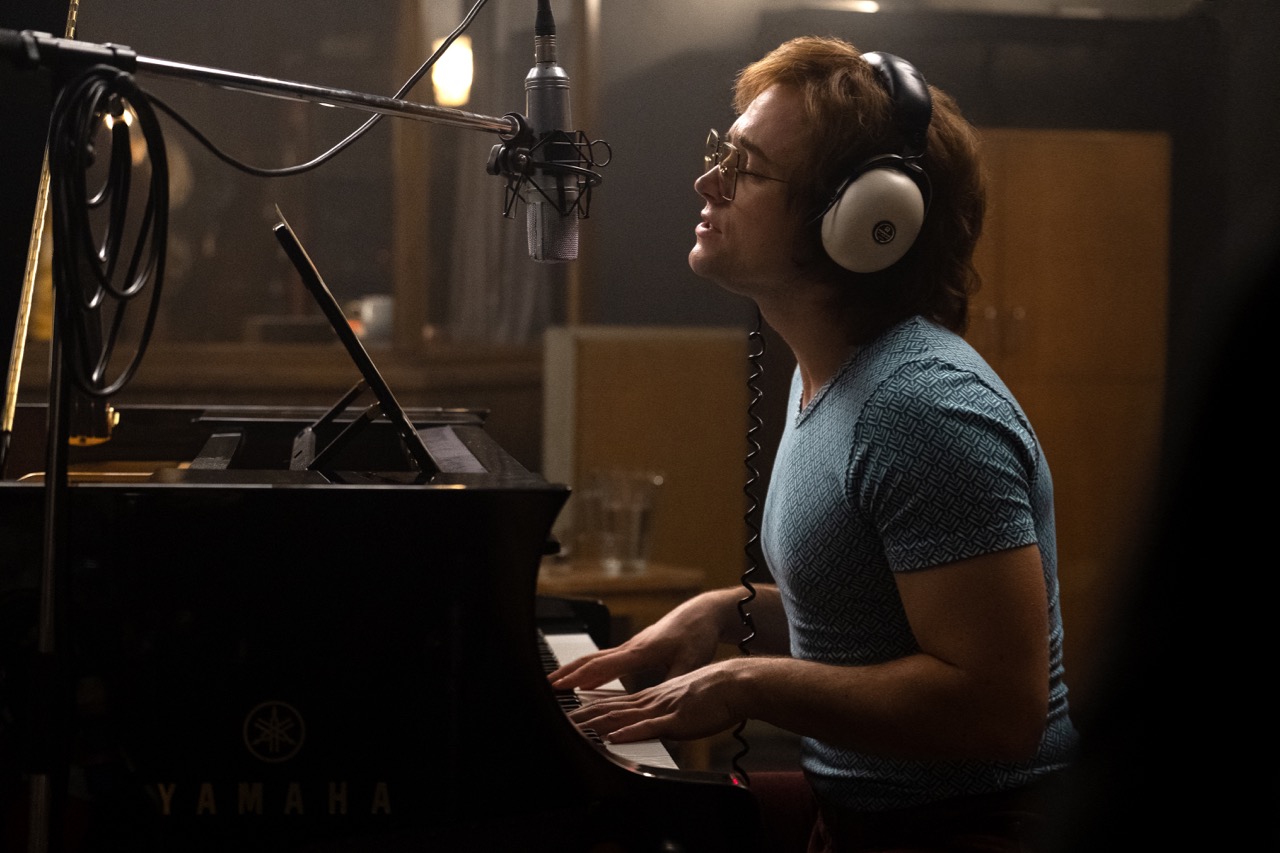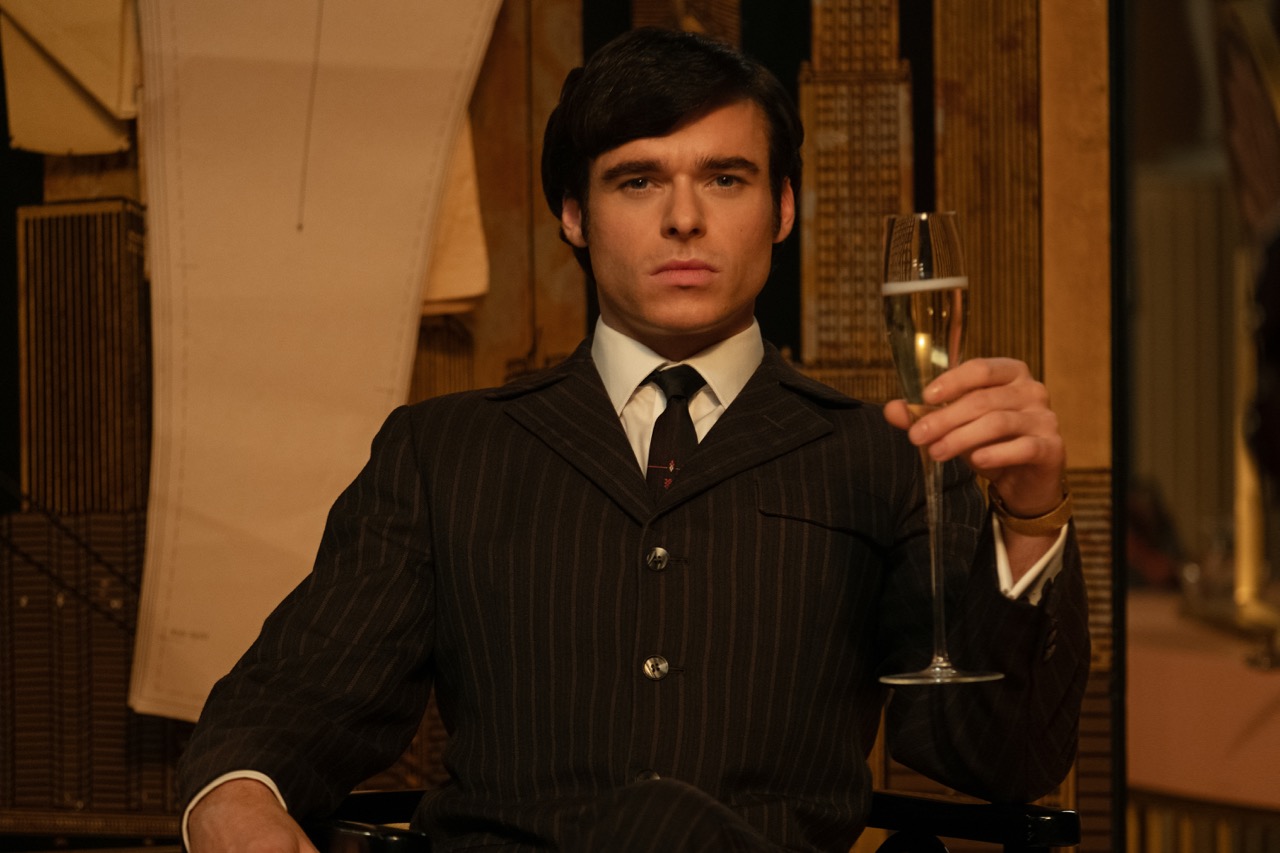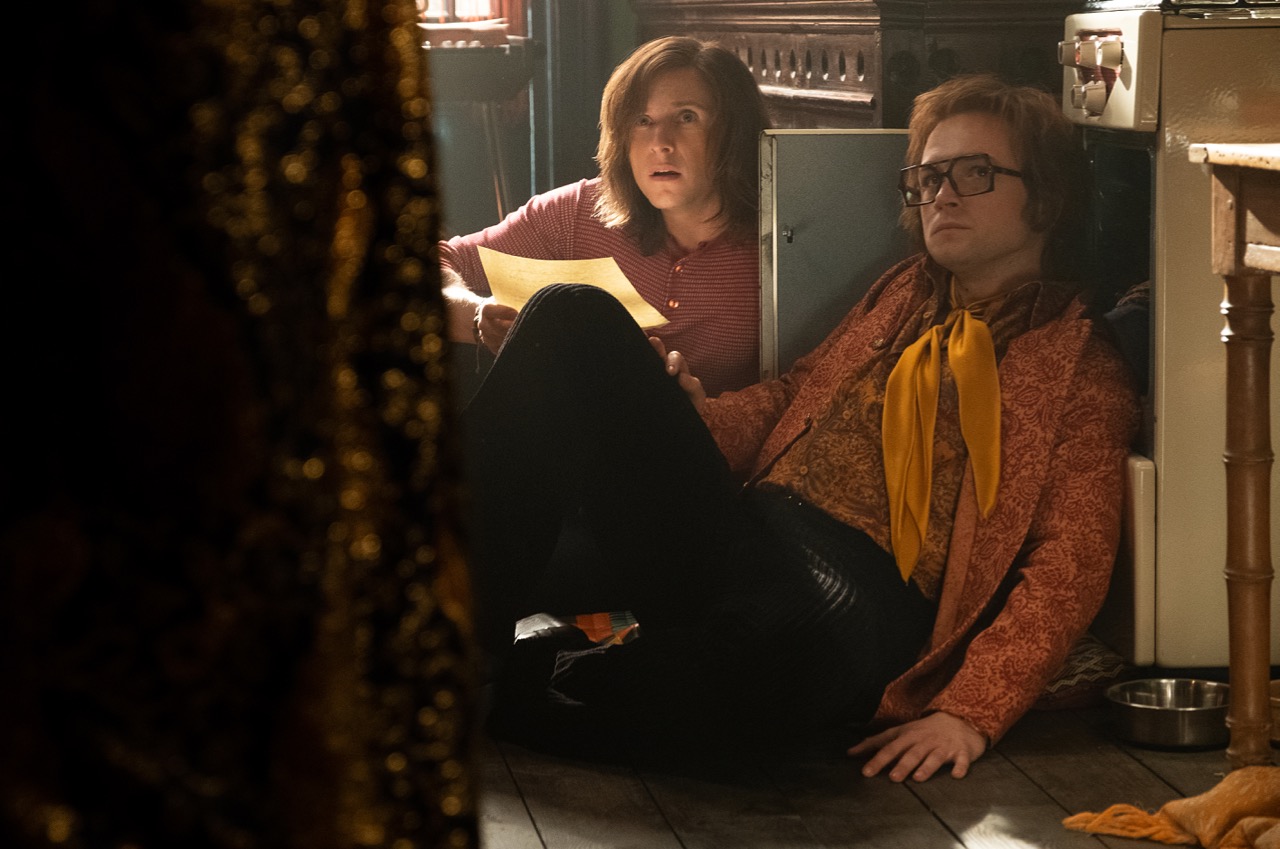 Melissa Anderson
Melissa Anderson
Electric boots, a mohair suit, and lots of cocaine: an Elton John biopic.

Taron Egerton as Elton John in Rocketman. Photo: David Appleby. © 2018 Paramount Pictures. All rights reserved.
Rocketman, directed by Dexter Fletcher
• • •
For the cover story of the October 7, 1976, issue of Rolling Stone, Elton John—who, not yet thirty, had completed his “Louder Than Concorde” tour at Madison Square Garden two months prior—told writer Cliff Jahr that it might be time to “cool it,” adding, “I mean, who wants to be a 45-year-old entertainer in Las Vegas like Elvis?”
Needless to say, over the decades the singer has morphed into that very kind of entertainer; he’s had two lengthy concert residencies at Caesars Palace in the past fifteen years. Now seventy-two, John will be playing the T-Mobile Arena in Sin City for two nights in early September as part of his globe-spanning “Farewell Yellow Brick Road” tour, which began last year and is scheduled to conclude in December 2020. John is finally, officially cooling it, at least from live performing; he is retiring from the road, he has explained, to spend more time with his husband, David Furnish, and their two young sons. The valedictory concerts are just one part of John’s recent flurry of brand-burnishing: his autobiography, Me, will be published in October. But the biggest boost to the pop legend’s back catalog—and to his apparently still-fragile inner child—is the biopic Rocketman, which counts John and Furnish among its producers. Directed by Dexter Fletcher, the film focuses primarily on the first decade and a half of John’s success—and excess. It takes flight with its innovations in form but flames out with its enthrallment to the vapidities of therapy-speak.

Taron Egerton as Elton John in Rocketman. Photo: David Appleby. © 2018 Paramount Pictures. All rights reserved.
Unofficially, Rocketman is Fletcher’s second fact-based farrago about a gay, peacocking British singer who reached superstardom in the ’70s. He took over directing duties during the final weeks of principal photography on Bohemian Rhapsody, last year’s feeble Freddie Mercury docudrama, after Bryan Singer was fired from the project. (Despite the axing, Singer retained sole director credit.) Bohemian Rhapsody is appallingly skittish about man-on-man action, reserve that did not extend to the ostentatious dentures worn by Rami Malek, who plays the bucktoothed Queen front man but lip-synchs Mercury’s virtuoso vocals.

Taron Egerton as Elton John in Rocketman. Photo: David Appleby. © 2018 Paramount Pictures. All rights reserved.
In contrast, Taron Egerton—who portrays John, né Reginald Dwight, from late adolescence through his mid-thirties in Rocketman—does his own singing (as do the supporting actors) and same-sex smooching. The lip-lock, with John Reid (Richard Madden), Elton’s manager and lover, proceeds quickly to the two men in bed: a dimly lit, Snapchat-length sex scene that might more accurately be called a sex second. (Brooks Barnes, in an excitable New York Times article published shortly after Rocketman’s world premiere at Cannes last month, noted that the film’s depiction of “gay sex” was “a first for a major studio”—Paramount, in this case—a puzzling declaration for anyone who recalls the leisurely XXX leather-bar segments in Cruising, released in 1980 by United Artists.)

Richard Madden as John Reid in Rocketman. Photo: David Appleby. © 2018 Paramount Pictures. All rights reserved.
If Rocketman exhibits about as much homo carnal abandon as Pete and Chasten Buttigieg at a Panera during a campaign stop, it proves more daring in its experimentation with structure. As the arc of John’s life is recapitulated—refreshingly, not always in chronological order—his Captain Fantastic–era chart-toppers are often deployed as they would be in a full-fledged musical: to advance and vivify the story. Staged with the verve of a Jacques Demy set piece, “Saturday Night’s Alright for Fighting” provides an exhilarating transition from John as an Elvis-worshipping tween (portrayed at this age by Kit Connor) to a young adult, soon to go on the road as a backup musician for an American-soul tour in the UK. Also sinuously executed, “Rocket Man” begins with John, who’s just gobbled a handful of Valium, at the bottom of his LA swimming pool—the jukebox musical as pillbox musical. The number continues as we see the singer on an ambulance stretcher and then on a piano bench in front of thousands at Dodger Stadium, one fluid motion that nicely illustrates what Egerton-as-Elton, “burning out his fuse up here alone,” is belting out. Other John mega-hits are touchingly reimagined as duets: the opening lines of “Goodbye Yellow Brick Road”—“When are you gonna come down? / When are you going to land?”—express the dismay of Bernie Taupin (Jamie Bell), John’s longtime lyricist, anguished over his friend’s colossal coke habit. (No matter how garish or awkwardly fitting some of their Me Decade ornamentation may be, Egerton and Bell, in their scenes together, convey a real sense of the genuine admiration these collaborators have for each other.)

Jamie Bell as Bernie Taupin and Taron Egerton as Elton John in Rocketman. Photo: David Appleby. © 2018 Paramount Pictures. All rights reserved.
The musical numbers wring the pathos out of relentlessly overplayed ’70s soft-rock anthems, long calcified into karaoke standbys. But problems frequently arise when the cast isn’t singing. Rocketman’s framing device features John at a recovery meeting, a staid gathering he storms into while outfitted as a besequined Beelzebub, an ensemble meant to evoke the outrageous Bob Mackie creations the singer wore in the ’70s. (Julian Day is Rocketman’s costume designer.) “I know how this bit goes,” John says in the movie’s opening minutes, as he sits down on a fold-out chair in a circle. Unfortunately, the audience knows too. He lists his addictions (booze, coke, sex, shopping) and disorders (bulimia). Dramatizations of icy indifference from Dad (Steven Mackintosh) and cruel words from Mum (Bryce Dallas Howard) accrete. Each time the film returns to the gray, somber room of fellow sobriety seekers, the pop-psych bromides and affirmations are trumpeted more stridently, culminating in a half-pint, short-pantsed Elton (Matthew Illesley) saying to his adult self, “When are you going to hug me?”
That spoony line, delivered near the end of the film, may be the worst in Lee Hall’s screenplay. But the most mawkish pronouncement in Rocketman arrives via the title of a new Taupin/John song that plays during the closing credits, with John sharing vocals with the actor who’s incarnated him for the previous two hours: “(I’m Gonna) Love Me Again.” The orgy of self-pity that dominates the final quarter of Rocketman feels especially depleting in a film that tries, and often succeeds, in revitalizing that most lumbering of genres, the musician biography. Goodbye, yellow brick road. Hello, life-coaching sessions.
Melissa Anderson is the film editor of 4Columns.